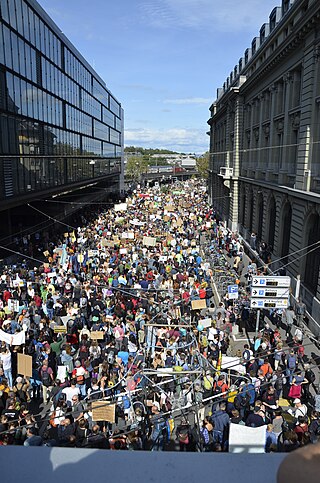Progress
Historical context
Since 1985, the percentage of foreigners in Swiss prisons has increased. [2] The initiators attribute this trend to increased immigration from distant countries and cultures and a perceived leniency in enforcing penalties (particularly in terms of withdrawal and expulsion). The initiative was proposed to ensure strict adherence to existing laws.
In practice, according to 2007 statistics, [3] the proportion of foreigners involved in the acts explicitly targeted by the initiative is as follows:
- 58.4% in cases of homicide.
- 61.2% in cases of burglary (theft combined with a violation of domicile or property damage).
- 60.8% in cases of robbery (theft with violence).
- 55.8% in serious sexual offenses (rape or sexual coercion).
- 57.7% in drug trafficking.
In 2009, the percentage of foreigners in Swiss prisons was 70.2%. [4] The number of expulsions under current laws varies significantly from region to region due to federalism, which allows cantons some flexibility. For instance, Geneva expelled between 15 and 30 individuals in 2009, while Lucerne expelled 58 people, and Vaud expelled 103 people. The total number of expulsions in 2009 was estimated at 664 people. [5]
Signature collection and submission of the initiative
The collection of the required 100,000 signatures took place from July 10, 2007, to February 15, 2008. It was submitted to the Federal Chancellery on the same day and confirmed as complete on March 7 of the same year. [6]
Discussions and recommendations of the authorities
Both the parliament [7] and the Federal Council [8] recommended rejecting this initiative. The Federal Council, in its recommendation, proposed an indirect counterproposal in the form of an amendment to the Federal Law on Foreigners. It stated that, in its opinion, the initiative "does not violate essential rules of public international law" but could result in "significant conflicts," especially regarding privacy protection and adherence to non-essential public international law.
During the parliamentary debate, deputies decided to amend the Federal Council's proposal by introducing a direct counterproposal. This counterproposal suggests determining the withdrawal of a criminal foreigner's residence permit based on an evaluation of the specific case's severity rather than a predefined list of offenses. It also includes provisions for the integration of the foreign population. [9]
The voting recommendations of the political parties are as follows: [10]
| Political party | Recommendation |
|---|---|
| Ticino League | yes |
| Conservative Democratic Party | no |
| Christian Social Party | no |
| Christian Democratic People's Party | no |
| Social Democratic Party | no |
| Green Liberal Party | no |
| The Liberals | no |
| Swiss People's Party | yes |
| Federal Democratic Union of Switzerland | yes |
| Green Party of Switzerland | no |
Voting
The initiative was put to a vote on November 28, 2010, and was accepted by 15.5/2 cantons [NB 2] and 52.9% of the votes cast. [11] The chart below details the results by canton: [11]
| Canton | Approval rate |
|---|---|
| ZH | 50.9 |
| BE | 48.7 |
| LU | 51.5 |
| UR | 53.3 |
| SZ | 42.4 |
| OW | 43.9 |
| NW | 41.9 |
| GL | 65.7 |
| ZG | 56.4 |
| FR | 51.7 |
| SO | 42.5 |
| BS | 50.1 |
| BL | 56.3 |
| SH | 46 |
| AR | 71.7 |
| AI | 40.4 |
| SG | 49.7 |
| GR | 42.4 |
| AG | 39.7 |
| TG | 38.3 |
| TI | 54.1 |
| VD | 67.9 |
| VS | 69.8 |
| NE | 63.9 |
| GE | 60.9 |
On the other hand, the government's counterproposal was rejected by all 20.6/2 cantons and 54.2% of the votes cast. [11] The chart below details the results by canton for this counterproposal: [11]
| Canton | Results |
|---|---|
| ZH | 46.9 |
| BE | 46.3 |
| LU | 46.9 |
| UR | 39.7 |
| SZ | 39.1 |
| OW | 43 |
| NW | 41.4 |
| GL | 41.4 |
| ZG | 49.3 |
| FR | 47.5 |
| SO | 44.9 |
| BS | 47.7 |
| BL | 48.2 |
| SH | 44.8 |
| AR | 46.2 |
| AI | 39.2 |
| SG | 44.2 |
| GR | 44.3 |
| AG | 47.1 |
| TG | 44.2 |
| TI | 44.7 |
| VD | 42.5 |
| VS | 48.2 |
| NE | 46.8 |
| GE | 43.3 |
| JU | 45.5 |
Results map

Incidents
- In Allschwil (Basel-Landschaft), masked unknown individuals took away a ballot box and set fire to its contents outside the polling station. [14]
- In Schlieren (Zürich), police thwarted an attempted arson attack at a polling station. [15]











